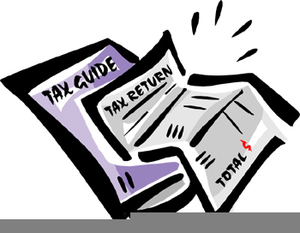
As tax season approaches, home sellers often wonder how their recent sale will impact their finances. Whether you sold your home last year or plan to do so soon, understanding the tax implications can help you maximize savings and avoid surprises. This Tax Guide for Home Sellers covers key tax considerations, from capital gains tax exclusions to deductions that could lower your tax bill.
1. Capital Gains Tax: What Home Sellers Need to Know
One of the biggest tax concerns for home sellers is capital gains tax, which applies to the profit made from selling a property. However, many homeowners qualify for IRS exclusions:
- Exclusion Amount: If the home was your primary residence, you can exclude up to $250,000 of profit if you’re single or $500,000 if you’re married and filing jointly.
- Eligibility Requirements: To qualify, you must have owned and lived in the home as your primary residence for at least two of the past five years. These years don’t need to be consecutive.
Example: If you bought a home for $300,000 and sold it for $600,000, your profit is $300,000. If you’re a married couple and qualify for the $500,000 exclusion, you won’t owe capital gains tax on the sale.
Learn how to manage capital gains and reduce your tax burden. Watch the video here: https://www.youtube.com/watch?v=CWQOP1g2o_o“
2. How to Calculate Your Cost Basis
Your taxable gain isn’t just the difference between your purchase and selling price. You can adjust your cost basis by adding certain expenses:
- Home improvements (e.g., new roof, kitchen remodel)
- Closing costs and fees
- Real estate commissions
By subtracting these costs from your sale price, you can reduce your taxable gain and potentially lower your tax liability.
3. Do You Need to Report Your Home Sale to the IRS?
If your gain exceeds the exclusion limit or you don’t qualify for the exemption, you’ll need to report the sale using IRS Form 8949 and Schedule D. Even if you qualify for the full exclusion, you might still receive Form 1099-S from your real estate agent or title company, which reports the sale to the IRS.
Pro Tip: Keep all relevant documents, including receipts for home improvements, closing statements, and property tax records, to make tax filing easier.
4. Selling a Second Home or Investment Property? Here’s What to Know

The tax rules for second homes and investment properties differ from those for primary residences:
- Second Homes: Generally, you cannot claim the primary residence exclusion unless you lived in the home for at least two of the past five years.
- Investment Properties: These sales are subject to higher capital gains tax rates, but you may defer taxes by using a 1031 exchange, which allows you to reinvest proceeds into another investment property.
Want to learn about a 1031 Exchange? Check out this article for key insights: https://chelsearowerealtor.com/what-is-a-1031-exchange/
5. State Capital Gains Taxes
In addition to federal taxes, some states impose their own capital gains taxes. Check your state’s regulations to determine your potential tax liability and any available exemptions.
6. Tax Deductions for Home Sellers
Many sellers overlook deductions that could lower their tax bill, including:
- Mortgage interest paid before the sale
- Property taxes (up to the allowable limit)
- Selling expenses, such as staging, repairs, and advertising costs

7. Should You Consult a Tax Professional?
Every home sale situation is unique, and tax laws can be complex. Consulting a tax professional or financial advisor ensures you maximize your savings and stay compliant with tax regulations.
Final Thoughts
Selling your home is a major financial milestone, and understanding the tax implications can help you protect your profits. By staying informed, keeping accurate records, and seeking professional guidance, you’ll be well-prepared for tax season and beyond.
Need expert tax advice? Consult a professional to ensure you take advantage of all available deductions and exclusions.


Recent Comments